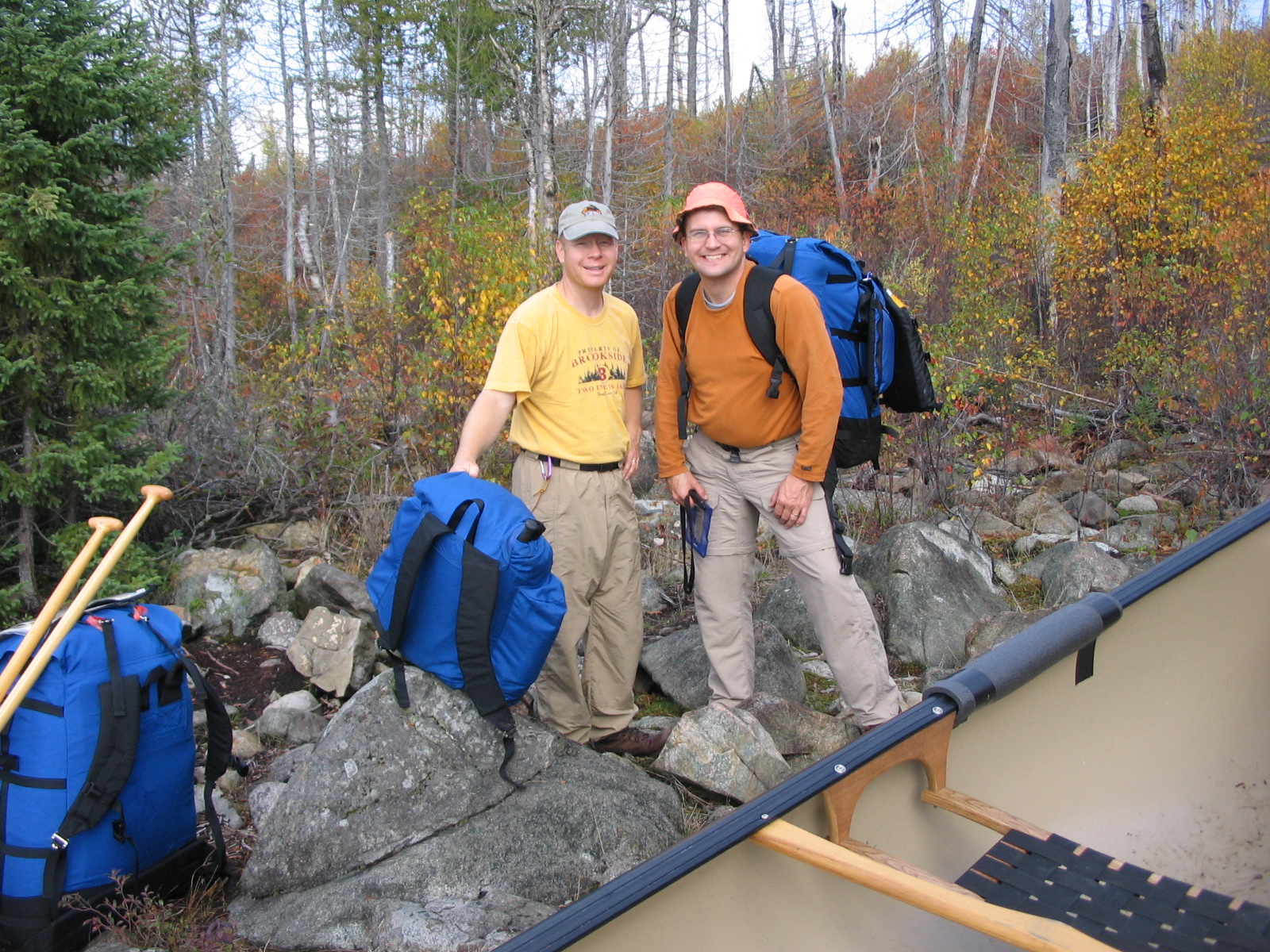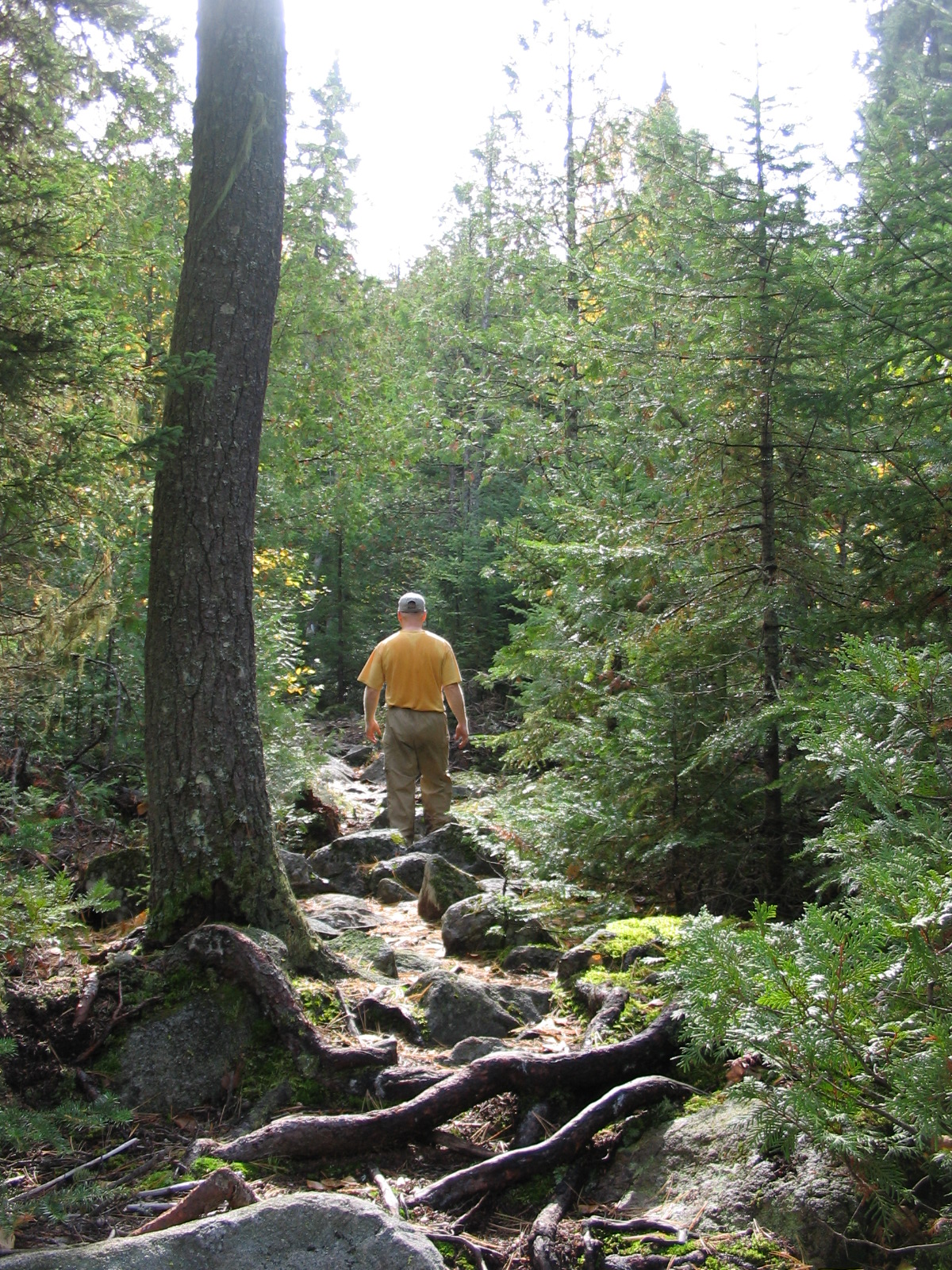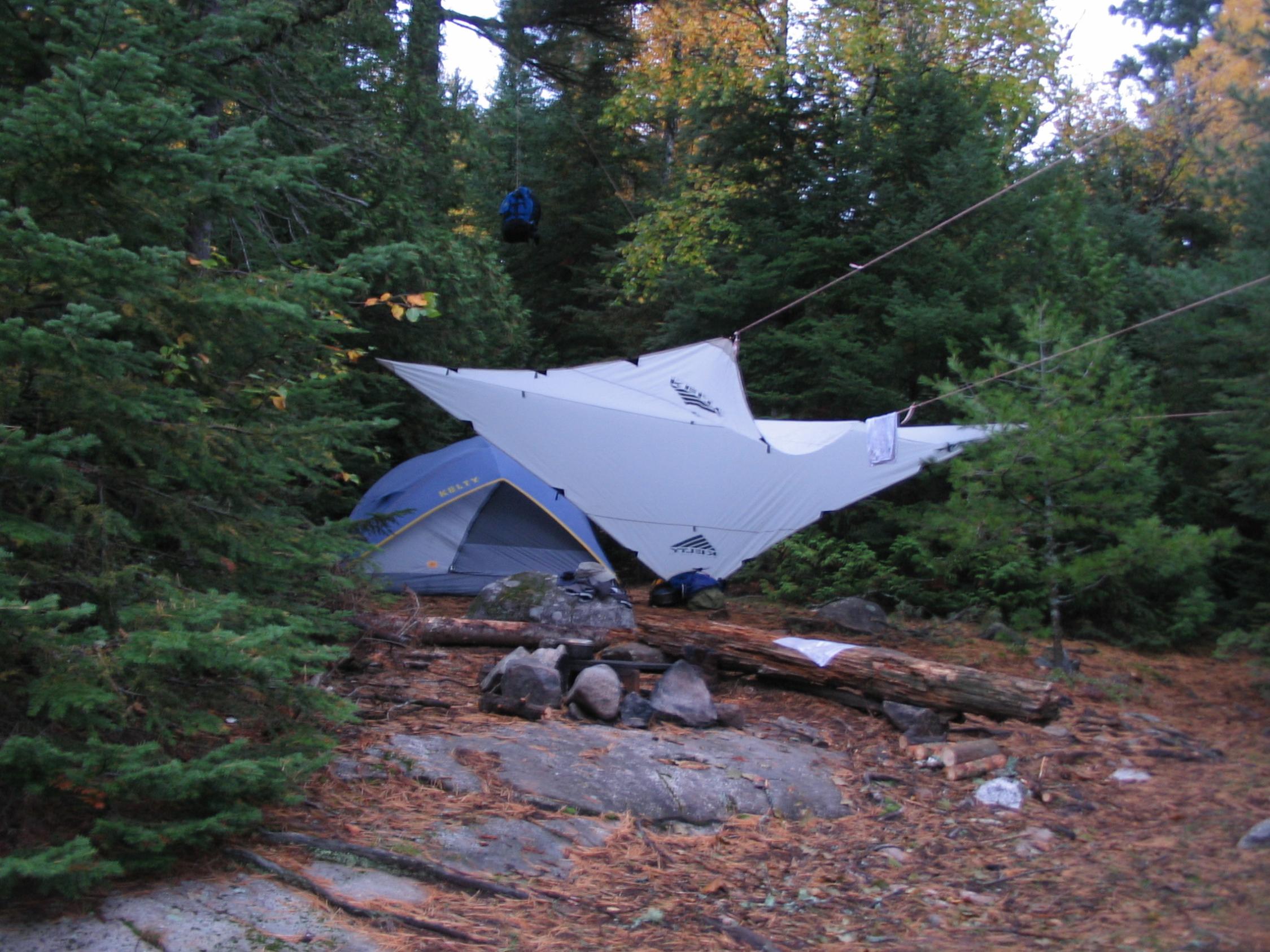Dry Summer, Wet Fall (2007)
by paddlinjoe
Thursday Day 2 Lakes (Little Trout, Misquah, Vista, Horseshoe, Gaskin, Winchell)
What a beautiful morning, we are blissfully unaware of the reputation that accompanies our first portage. We take our time waking and making breakfast. This is the first of two slow paced mornings. Because I over packed on the fresh milk by accident, we have milk to add to the making of the pancakes. No sense carrying the extra weight any longer than necessary. With the removal of the heavy chili and the 8 oz of milk, Chris is prepared to skip lightly across the portage path with the food pack, or not.
Once on the water, we expect a short paddle to our portage. As we left our camp site we spotted camo man from the previous evening. He's very chatty and keeps tabs on us while we paddle back and forth across our bay looking for a portage. We find the portage with camo mans help, he says that he's considering traveling across the portage himself if Trout fishing gets slow. Typically one can spot a portage by the worn foliage areas where people take out canoes, or the gap in the trees where the path begins. Not this portage. There is no foliage at the take out area because it is a boulder field. Imagine those large landscaping stones people use to decorate front yards. They use one or two and the kids like to play on and climb over them. My parents have one. That is the size of the boulders strewn in all directions at the portage landing. The “gap in the trees” is off to the right, tucked behind some bushes and a very large rock at the other end of the boulder field. To get to it, one has to hop from boulder to boulder across the field until you reach dirt. It's at this point that camo man informs us that this particular portage has a reputation as one of the hardest in the Eastern Boundary Waters.
We head off across the boulder path portage. Topographically the portage has two good sized hills which act as bookends for a swamp in the middle. It is definitely a challenge. What makes it so much fun is the fact that you can't just walk putting one foot in front of the other. Each step must be planned as you contort your body over, across, around rocks as you go up and down the slopes of the hills. The "flat" ground between the hills isn't any better, mostly because there wasn't any ground. The path was typically under water (nice test for our new boots ) where one could choose to walk through the water or along the muddy edge. In some places there were logs to allow one to cross the water. Very slipper logs. Baby steps were in order on the logs, they tended to move and shift and balance was a challenge. There are "tough" portages and then there are portages where you're just glad when no one gets hurt in the process. I was just glad no one got hurt on this portage.
Nothing in particular stands out regarding the rest of our day until we got to the portage into Winchell, except to say that while the portages were shorter, the were still hilly, rocky and wet. I don't even remember where we had lunch. As we approached the portage to Winchell, we could see that rain was on the way. We wanted to get to our campsite before it started to rain, in hopes that we could set up a tarp to stay dry. We single portaged into Winchell in order to save some time, which left Chris carrying two pretty heavy packs. Then we put our backs into paddling to find a camp site. Winchell is a about 7 miles long going West to East but only about ½ mile wide North to South. It's 7-9 campsites are all along the northern shore. We passed the first couple camp site locations with a slight breeze in our faces hoping to make our way a bit farther down the lake. Just as we got to where we could see the third camp, two things happened. One - we saw that it was occupied, bummer. Two - a nasty head/cross wind slammed into us, and we could see a wall of rain that would arrive in about 10 seconds. Rain Jackets on, hoods up. Bam. Waves were not a concern, but I've never had my canoe moved from side to side like that before. Now we paddled like wet rats into the driving rain and wind up to the next camp site. We pulled over to check it out. It was a little bit too close to the occupied site we'd just passed for our liking, but we were exhausted. It was time to stop. The site was up above the water with a good tent pad and food pack tree. The rain let up and we began the process of making camp. The day's travel had started and ended with a bang and we were tired.
Tent and Tarp were set up, more fire wood gathered and work on supper begins. Joel prepares a Steak and foil wrapped potato/carrot/onion side dish. Once again, dinner preparation was done mostly in the dark. Dark is a good time to eat my camp cooking. It helps one evaluate the items consumed based on taste rather than looks. Have I mentioned how much we made use of our headlamps on this trip? They really help extend the travel day, because you can function fairly well in the dark making food. I'm not sure that a longer travel day is what Chris was hoping for, but my headlamp has replaced my other flashlights, and it weighs less.
We stared at the fire for a while after supper before heading to bed. I don't believe we read any books after the first night on the this trip. I don't know if the book topics just didn't resonate this time, or if we were too tired, or if the tradition is fading away. I know that I won't be bringing 4 books up again. (I'm not sure that Chris knows he carried that many around with him for the week)




 Donate - BWCA.com
Donate - BWCA.com